Filter by

Hobohemia and the Crucifixion Machine Rival Images of a New World in 1930s V…
Vancouver’s municipal government entered into contractual relationships with dozens of private businesses, tendering bids for meals in much the same fashion as for printing jobs and construction projects. As a result, entrepreneurs clamoured to get their share of the state spending. With the emergence of work relief camps, the provincial government harnessed the only currency that homeless me…
- Edition
- -
- ISBN/ISSN
- 9781926836287.01
- Collation
- -
- Series Title
- Fabriks: Studies in the Working Class
- Call Number
- -
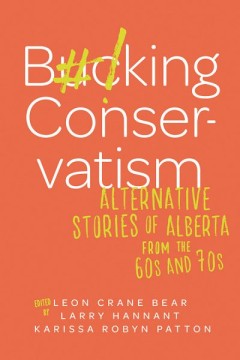
Bucking Conservatism Alternative Stories of Alberta from the 1960s and 1970s
With lively, informative contributions by both scholars and activists, Bucking Conservatism highlights the individuals and groups who challenged Alberta’s conservative status quo in the 1960s and 70s. Drawing on archival records, newspaper articles, police reports, and interviews, the contributors examine Alberta’s history through the eyes of Indigenous activists protesting discriminatory l…
- Edition
- -
- ISBN/ISSN
- 9781771992572.01
- Collation
- -
- Series Title
- -
- Call Number
- 368 pages
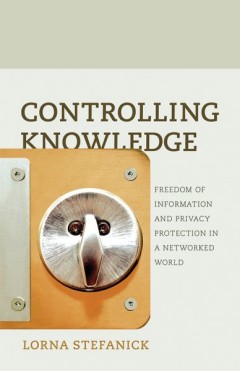
Controlling Knowledge Freedom of Information and Privacy Protection in a Net…
Digital communications technology has immeasurably enhanced our capacity to store, retrieve, and exchange information. But who controls our access to information, and who decides what others have a right to know about us? In Controlling Knowledge, author Lorna Stefanick offers a thought-provoking and user-friendly overview of the regulatory regime that currently governs freedom of information a…
- Edition
- -
- ISBN/ISSN
- 978-1-926836-26-3
- Collation
- -
- Series Title
- -
- Call Number
- -

Nationalism, Self-Determination and Secession
What makes a nation, and what makes peoples strive for nationhood? This unit will provide you with an introduction to studying political ideas by looking at how people who see themselves as nations challenge the existing order to assert their right to a state of their own. After studying this unit you should be able to: grasp the concepts of nation, nationalism and self-determination; have a be…
- Edition
- -
- ISBN/ISSN
- -
- Collation
- -
- Series Title
- -
- Call Number
- 320 AND n

Transitions in Segmented Labor Markets
When labor market economists started to work on segmented labor markets, they classified informal employment as a transitory state. At the end of the 20 century, informal employment still persists governments’ attempts to eradicate it and represents a growing labor market segment not only in developing countries but worldwide. It is evident that informal employment will not disappear but has …
- Edition
- -
- ISBN/ISSN
- 9783631531624
- Collation
- -
- Series Title
- -
- Call Number
- 320 WOL t

Arctic governance
This book seeks to pose and explore a question that sheds light on the contested but largely cooperative nature of Arctic governance in the post-Cold War period: how does power matter – and how has it mattered – in shaping cross-border cooperation and diplomacy in the Arctic? Each chapter functions as a window through which power relations in the Arctic are explored. Issues include how repr…
- Edition
- -
- ISBN/ISSN
- 9781526131645
- Collation
- -
- Series Title
- -
- Call Number
- -
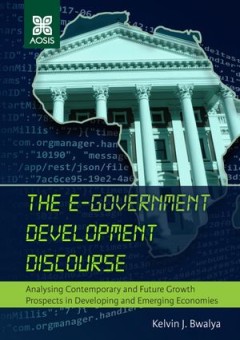
The e-Government Development Discourse
research agenda for e-Government. When e-Government was first conceived, it was designed upon basic technologies where the emphasis was only on the simple display of government information for citizens to read. Nowadays, e-Government design comprises many complicated modules such as upload and download consoles, two-way interaction consoles between citizens and government agents, integrated gov…
- Edition
- -
- ISBN/ISSN
- 9781928396574
- Collation
- -
- Series Title
- -
- Call Number
- -
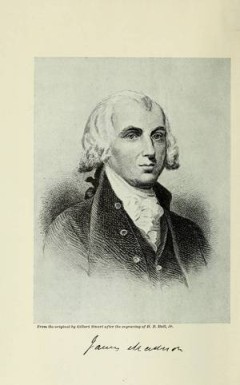
James Madison's Notes of Debates in the Federal Convention of 1787
Virginia politician James Madison kept detailed notes of the debates that took place in 1787 during the drafting of the Constitution of the United States. This volume reproduces them for easy reading.
- Edition
- -
- ISBN/ISSN
- -
- Collation
- -
- Series Title
- -
- Call Number
- -
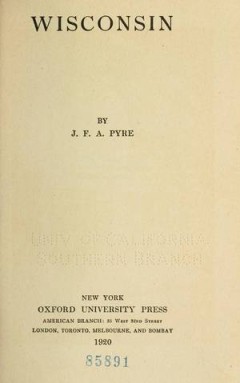
 Computer Science, Information & General Works
Computer Science, Information & General Works  Philosophy & Psychology
Philosophy & Psychology  Religion
Religion  Social Sciences
Social Sciences  Language
Language  Pure Science
Pure Science  Applied Sciences
Applied Sciences  Art & Recreation
Art & Recreation  Literature
Literature  History & Geography
History & Geography